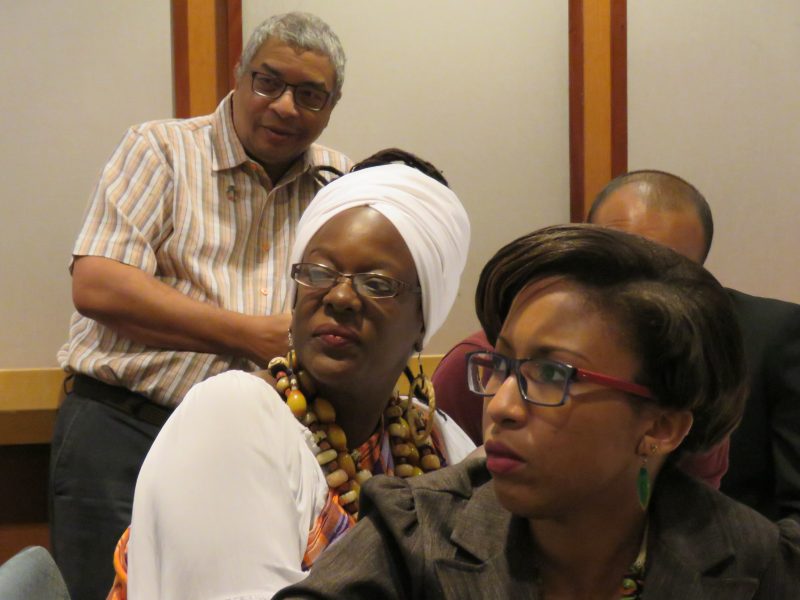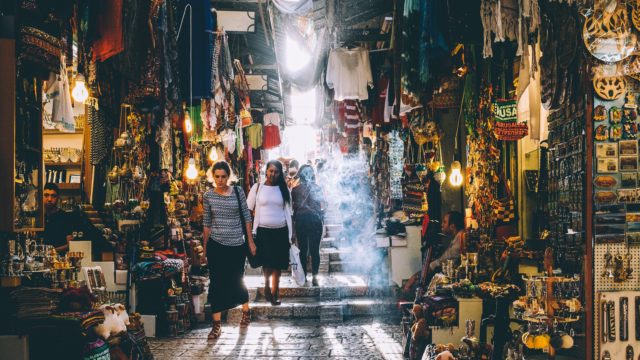
In many ways, Trinidad and Tobago is on the front lines of the green economic transition. Although it escaped unscathed from 2017’s hurricanes, this Caribbean island state is certainly in harm’s way when it comes to future climate impacts. And, as the country’s oil reserves dwindle, the economy is in desperate need of diversification away from fossil fuel exports, much like the big oil states of the Middle East. The brown economy may have brought investment to the islands in the past, but there’s a clear sense that now, something new is needed.
As such, the Green Economy Coalition was particularly excited this year to hold our annual GEC Global Meeting in Port of Spain, Trinidad. Every year, the Global Meeting brings together the network and our local dialogue partners so we can share successes and plan strategy for the coming year – and in Trinidad, the challenges and opportunities for the green economy were plain to see. Now that the Coalition has dispersed once again to our respective corners of the globe, let’s take a moment to reflect on some of the outcomes of what was an inspiring week.
This year was the first that a regional partner – in this case, the Caribbean Natural Resources Institute (CANARI) – co-hosted the event in-country, ensuring that local communities were central to the week’s discussions. After all, bringing the interests of ordinary people into the broader economic debate is at the heart of what we do at the GEC.
“ We know that for the transition to a truly green economy to take place at scale, it must be powered by small entrepreneurs and local businesses...”
The importance of that local perspective was brought home from the very first day, a field visit to the Santa Cruz Green Market in the hills above Port of Spain. In the lush greenery of the Trinidad countryside, the delegates met local craftspeople and entrepreneurs, covering businesses as diverse as jewellery manufacture, recycled paper products, and agricultural IT systems – but united by a shared belief in sustainability and community-level engagement.
We know that for the transition to a truly green economy to take place at scale, it must be powered by small entrepreneurs and local businesses just like these. But governments and institutions find it notoriously difficult to reach smaller enterprises, and so policies and practices often lag far behind what's required.
That’s why our global meeting this year focussed on how small businesses can be empowered and emboldened to act as the vanguard of the green economy transition. We want to build a social movement of citizens and small entrepreneurs, led by local communities themselves, and small business owners from across the Caribbean attended the meeting to ensure that local voices were heard.
Together with those local entrepreneurs and our national partners from the GEC’s 7 dialogue hubs, we explored different country experiences of supporting SMEs, and how they can be empowered to lead the economy rather than just exist on its margins. Business owners shared their own practical examples and real-life experience of how SMEs are managing day to day, and what they actually need to expand and provide good jobs and green growth. And a special sessions examined the role of a green economy in recovering from – and building resilience for – natural disasters such as the hurricanes that battered so much of the Caribbean this year.
Inspired by these discussions, the Global Meeting this year saw the drafting and launch of the Santa Cruz Declaration on Local Green Enterprises - a call to action from manufacturers, producers, business owners, entrepreneurs, innovators, and local communities in recognition of the vital importance of smaller businesses to addressing global challenges.

As the declaration notes, small and medium-sized enterprises (SMEs) are engines of prosperity, job creation and innovation, delivering economic, social and environmental benefits to communities and countries. They are the economies of today and tomorrow, and the world cannot confront the intertwined problems of climate, development and inequality without them. Download the full declaration here – and keep an eye out in the coming weeks for a short video we’re producing to promote it.
The global meeting was also a chance for our seven national dialogue hubs – based in India, Mongolia, Peru, Senegal, South Africa, and Uganda, as well as the Caribbean – to come together to share success stories and best practice, develop cross-network strategies, and learn from each other on what works. With four new hubs joining the GEC network in 2017, this was the first time that the whole network had come together, and the level of knowledge and commitment on display from all the partners was inspiring.
We also filmed a series of interviews with our dialogue partners, which we’ll be editing together over the coming months – watch this space!
Trinidad and Tobago's brown economy may have driven growth in the past. But that engine is sputtering now, and more and more citizens are realising that it has not brought the inclusive, long-lasting wellbeing that was promised. What's more, the experience of Trinidad and Tobago is being mirrored around the world. The global brown economy isn't working, and we know that green solutions that deliver safer, more sustainable and more equitable outcomes for all are within reach. Our 2017 global meeting was, we hope, an important step in that direction.


